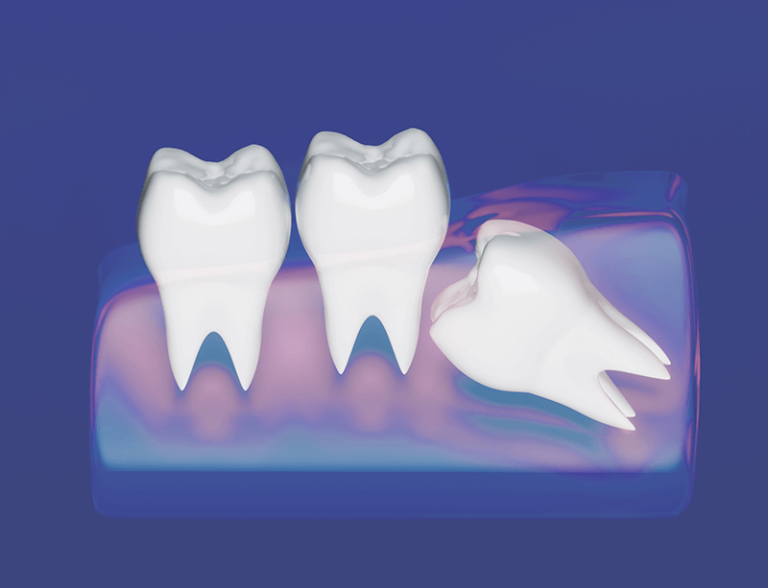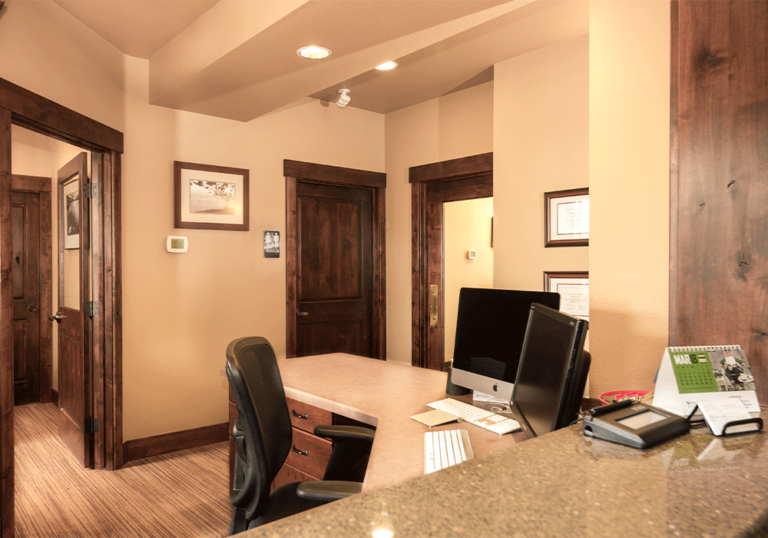Wisdom Teeth Removal
Wisdom teeth are the third molars in the very back of your mouth. They don’t always need to be removed, but they can cause problems if they are not growing in properly. We provide advanced state-of-the-art oral surgery and wisdom teeth removal.
Wisdom Tooth Extraction Process
Believe it or not, most people’s jaws are too small for their wisdom teeth to erupt correctly. These teeth typically come in when people are in their late teens or early 20s. With regular dental checkups, we can monitor the progress of these teeth with digital X-rays. If we see that a problem is likely, we may recommend removing those teeth.
When wisdom teeth aren’t able to grow correctly, they become impacted. When that happens, the impacted teeth can cause pain. They also can press into your other teeth, which can change how your bite fits together as well as the appearance of your smile. Wisdom teeth also can be difficult to clean because of how far back they are. That is partly why they can increase your risk of gum disease and tooth decay.
If you need a wisdom tooth extracted, our priority is to ensure you are comfortable and calm for your surgery. We will prepare the surgical site by administering local anesthetic. Next, we’ll remove your wisdom teeth, being careful to preserve your bone and gum tissues. Once your surgery is complete, we’ll provide instructions for your recovery and at-home care as you heal. Adhering to these instructions will help ensure a healthy blood clot forms and you don’t develop any infection at the surgical site.

-
How do I know if my wisdom teeth need to be removed?
While every patient is different, there are some common signs that indicate the need to have your wisdom teeth removed. These signs include:
- Impaction, i.e., if the tooth is stuck under the gums or is completely hidden. If wisdom teeth aren’t able to emerge normally, they can become trapped within your jaw which can result in infection or cause a cyst that can damage other teeth or roots. We typically refer those with impacted wisdom teeth to another office.
- Changing bite alignment—wisdom teeth can grow at various angles in the jaw, sometimes horizontally, and this can cause a change in your bite alignment.
- Crowding or damage to existing teeth caused by wisdom teeth not having enough room to come in properly.
- Emerging only partially—if your wisdom teeth only partially emerge through the gums it can cause a magnet for bacteria that can cause gum disease and oral infection.
Many dentists recommend removing wisdom teeth at an early age before the roots and bone are fully formed, and when recovery is faster.
-
How do I relieve wisdom tooth pain?
As wisdom teeth grow up through your jawbone and begin to break through your gum line, they may become inflamed or bleed. This can cause headaches or tooth pain. Here are some remedies to relieve wisdom tooth pain:
- Rinse with salt water
- Use peppermint essential oils or clover oil to soothe the pain
- Take aspirin or an over-the-counter pain reliever
- Apply an ice pack or heating pad to your cheeks
More Questions?
If you have more questions about wisdom teeth removal, please give us a call and we'll be happy to discuss it further.

